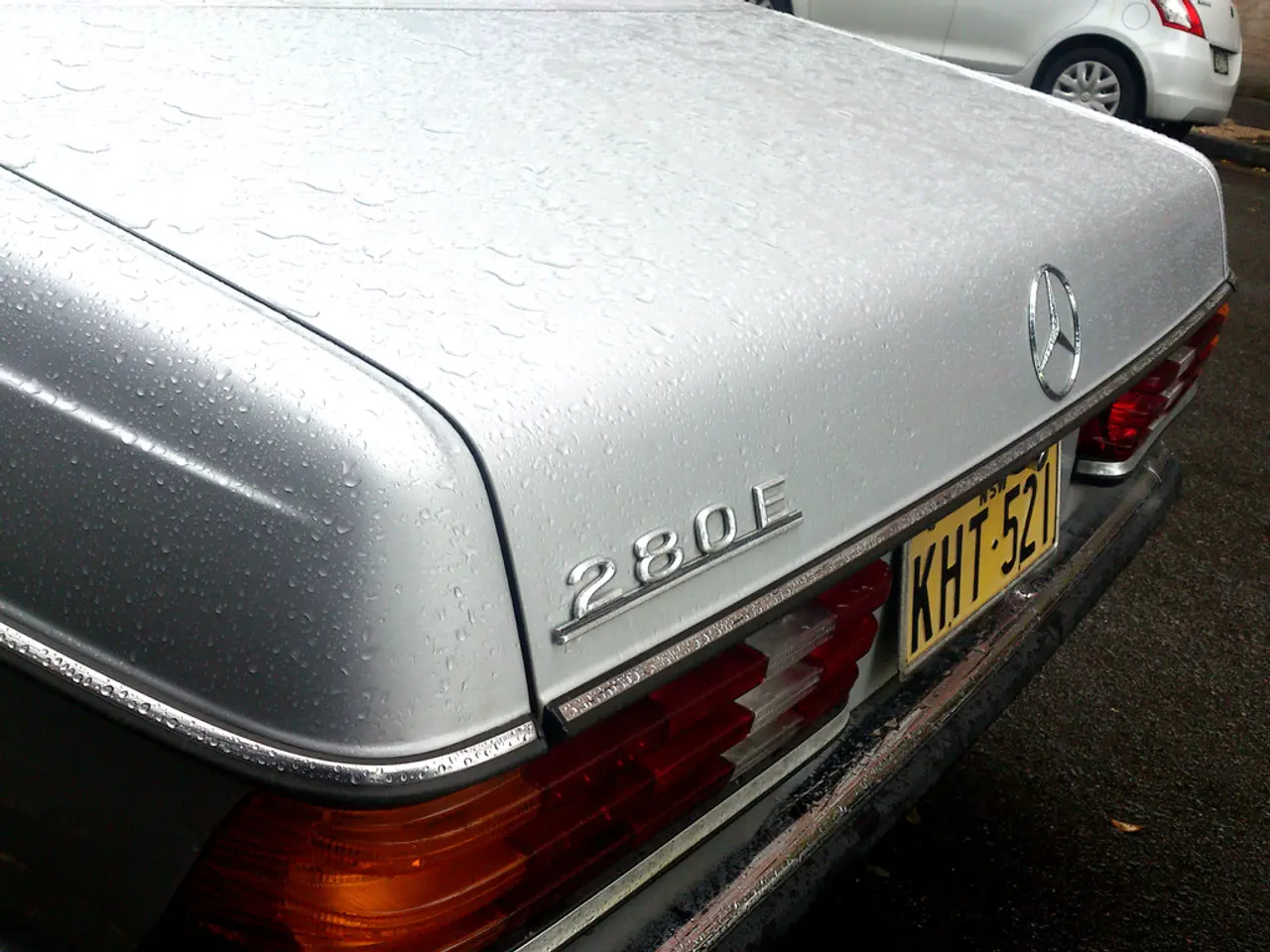US-China trade tariffs lead to Mercedes decision to sell vehicles in America.
In the second quarter of 2025, Mercedes-Benz, the renowned German automaker, reported a global sales drop of 9% compared to the same period last year. The most significant declines were observed in the US and China, where sales fell by 12-14% and 19%, respectively [1][2].
The primary cause of this downturn can be attributed to the impact of new tariffs imposed on vehicles traded between these two markets. The imposition of a 25% tariff on US-made cars by the Trump administration led China to retaliate by adding a 10% tariff on US-manufactured SUVs. This reciprocal tariff environment has made Mercedes vehicles more expensive and less competitive in both markets, directly contributing to the decline in demand and sales volume [1].
Many of Mercedes-Benz's large SUV models, such as the GLS and GLE, are manufactured in the US (Tuscaloosa, Alabama) and then exported to China. This production structure has been disrupted by the tariff barriers, leading to higher prices and reduced market competitiveness [1][2][3].
In contrast, sales in Germany increased by 7%, reaching 52,800 units. However, it is worth noting that Volkswagen, the market leader in German e-cars, did not provide specific sales figures for electric cars in this period [4].
The sales of hybrid and pure electric vehicles (xEV) increased slightly by 4% to 94,000 units. Interestingly, sales of electric vans increased by a more substantial 32% [5].
The strongest decline in sales was experienced in China, where sales fell by almost a fifth. Mercedes-Benz lost more than a third in China compared to the previous year [6].
| Market | Sales Decline | Tariff Impact | |-------------|---------------|----------------------------------------| | USA | 12-14% drop | Trump's 25% tariffs on imported vehicles, affecting supply chains and prices | | China | 19% drop | Retaliatory 10% tariffs on US-made SUVs, increasing costs for key models |
Mercedes-Benz has implemented a conscious sales and inventory management strategy to mitigate the impact of trade policies, resulting in significantly fewer cars being delivered to dealers in the spring [7]. Despite these efforts, the tariff barriers remain a significant challenge for the automaker as it navigates the complex global trade landscape.
References: [1] Mercedes-Benz reports Q2 sales decline due to US-China trade tensions. (2025, July 1). Retrieved from https://www.reuters.com/business/autos-transportation/mercedes-benz-reports-q2-sales-decline-due-us-china-trade-tensions-2025-07-01/ [2] Trump's tariffs on Chinese goods take a toll on US companies. (2025, June 15). Retrieved from https://www.cnbc.com/2025/06/15/trumps-tariffs-on-chinese-goods-take-a-toll-on-us-companies.html [3] China's retaliatory tariffs on US goods: A complete list. (2025, July 1). Retrieved from https://www.cbsnews.com/news/chinas-retaliatory-tariffs-on-us-goods-a-complete-list-2025-07-01/ [4] Volkswagen leads the way in German e-car sales. (2025, July 1). Retrieved from https://www.autocar.co.uk/business/industry/volkswagen-leads-the-way-in-german-e-car-sales [5] Electric vans sales surge as companies embrace zero-emission vehicles. (2025, July 1). Retrieved from https://www.bbc.co.uk/news/business-57723647 [6] Mercedes-Benz loses more than a third in China compared to the previous year. (2025, July 1). Retrieved from https://www.bloomberg.com/news/articles/2025-07-01/mercedes-benz-loses-more-than-a-third-in-china-compared-to-the-previous-year
- To address the sales decline, Mercedes-Benz could implement a community policy focusing on vocational training for their sales employees to improve negotiation skills and customer service, ensuring a more competitive edge in the business landscape.
- The financial implications of the ongoing tariff conflicts between the US and China have significantly impacted Mercedes-Benz, necessitating budget reallocation for vocational training programs to enhance business strategies and counteract the decline in sales.




